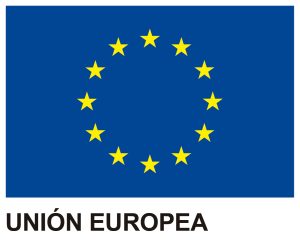RegTech is a new concept derived from the definition of FinTech primarily signifying the technology applied to resolve issues regarding regulation within the financial industry. It helps companies to better manage and understand their legal risks as well to easily adhere to their regulatory obligations.
This is due to today’s new technologies giving rise to new regulatory necessities and the market’s legal framework often being slow in adapting to and accompanying the speed of these changes within the environment. After a disruption of the market, through new FinTech solutions arising, RegTech helps to adapt the regulatory, financial services and general professional services sectors to these changes.
Adapting to the speed of these changes is key for companies and the governments of any nation, guaranteeing that all those involved will benefit from the arising innovations within the financial industry. In this sense, the technology acts as an important frame of support to expedite, integrate, and automate this process of adaptation to regulations and even to create and audit, therefore offering security and reliability for these governments and companies involved.
The consulting company, Deloitte, announced in a report released in January this year that RegTech could already be considered the new FinTech, referring to companies that offer technology for the financial sector, a concept which is currently trending.
This roots to their belief that that there is a hole that is not being completely considered in the innovations and trends of the financial sector, simply described as the norms and regulations in place.

Similarly, an article released this March by RegTechFS discusses how regulators were often left out of the conversation of technological advancements, as they were not previously involved in how business is conducted. Filling this hole not only provides regulatory systems an opportunity to progress, but also allows other industries to move further along, not being held back by regulatory challenges.
According to the Deloitte report, “in the short term, RegTech will help companies to automate prevalent tasks of compliance and to reduce the operational risks associated with compliance and reporting obligations”.
Applying technology to issues of regulation is not particularly new, however some of the characteristics that bring and differentiate the concept of RegTech specifically are agility, velocity, integration and the possibility of analysis. According to the Deloitte report, RegTech “provides executives a higher level of opportunity to introduce new capacities that are designed to take advantage of the systems for the obtaining of normative data and the presentation of reports in a profitable, flexible, and timely manner, without running risks of replacing the existing legal systems”.
Examples of companies (according to Deloitte) that already can be considered to be within the RegTech sector include:
- Fund Recs: Based in Ireland since 2013, Fund Recs focuses on providing a reconciliation platform to progress data management and processes in the Funds Industry. Not only does this allow data leveraging to become more efficient, powerful, and cost effective; but Fund Recs believes that day-to-day business softwares should be well designed and easy to use, making the overall platform applicable to any business. Fund Recs recently took the step forward to also launch their VELOCITY platform for Fund Administrators to develop valuations efficiently.
- Silverfinch: Part of the MoneyMate Group, establishes connectivity between asset managers and insurers by providing fund data utility through a platform that is safe and controlled. As a self-service tool by design, Silverfinch gives the user increased control whilst still offering training, support, and establishing connectivity within Silverfinch. Through this secure platform, competitors have no access to proprietary information, while insurers can still keep up with their solvency regulation requirements through connectivity with asset managers,
- Trustev: Based in Ireland, this RegTech company combines machine learning and human intelligence to look holistically at data from online transactions and events. Trustev then scans these transactions, all in real time, to catch potential fraud. Allowing one to reduce fraud allows one to stop fiscal leaks and operative challenges faced by fraud, whilst not affecting the genuine customers that one interacts with.
- TradeFlow: As a platform operated by Expeditors, TradeFlow provides information on tariff data and regulations, compliance, expected costs of various operations, and much more, to assist both importers and exporters in combating challenges they may face when partaking in international trade. Tradeflow operates as a supply chain tool to make international trade easier, by making international regulations easier to follow, therefore allowing global trade to grow.
- Vizor: Now operating in 30 countries, Vizor serves both companies and financial regulators. Through Vizor’s software, a company can see and understand all their financial regulatory requirements and have full knowledge of any gaps. Regulators can easily track companies and see which firms are meeting their regulatory obligations. Not only does this create ease in meeting obligations, but it also shows that greater trust within this industry can be built.
- Corlytics: The Corlytics Financial Fines Database is platform of financial fines providing information on a global scale on financial institutions, regulators, fining authorities, fine parameters, and more. Using analytics technology, the database is further connected to global cases and regulators, allowing further insight. Corlytic´s database allows companies access to trends and analysis, as well as the opportunity to identify potential risks and loss estimations.
- KYC3: Founded in 2013, KYC3 focuses on three themes: compliance, counterparty risk management, and competitive intelligence. Providing instant reports from compliance, to political risk management, to networks of influence, and much more, KYC3 allows one to complete all due diligence tasks, be efficient, meet compliance regulations, and discover further opportunities and threats. Using big data, KYC3 delivers data mining and analysis solutions to you.
- TheMarketsTrust: Based in Luxembourg, TheMarketsTrust provides solutions to risk analysis through insights into the financial industry and offering advisory services through financial knowledge and by leveraging their expertise of technology. Through an in-house research team, TheMarketsTrust aims to be both unique and customer-centric, providing solutions to one’s specific needs.
- AssetLogic: As a fund information network, AssetLogic allows one to aggregate all their data and information into an online location in little time. Through this tool, one can share information and data with whoever they like, allowing more efficient use of this data. Not only will compliance work more effectively, but all sides of an organization will benefit, from investor relationships, to marketing, and more.
- FundApps: This RegTech platform allows one to automate their compliance monitoring by entering a collaborative community in which industry experts manage the community and help companies be aware of threats and opportunities. Combining high-end technology and experienced industry experts, FundApps aims to deliver quickly, efficiently, and effectively, by harmonizing technology and content.
The advantages of RegTech can be well applied tools of:
- Analysis of gaps in legislation and regulation
- Real-time information
- Compliance and investor relations
- Information management
- Reporting of transactions and regulatory reports
- Storages of risk data
- Data aggregation, analysis, and sharing
- Loss, profit, and risk estimations
RegTech represents an opportunity to companies that develop this type of technology, although the challenge currently is to know to apply it well and to do so with an agile manner with regards to technological changes, offering a real competitive edge for companies.
Private Investment Networks similarly shares this vision on RegTech, both fostering and advancing the world of FinTech that we experience today. Through its many roles, RegTech can act as a facilitator of compliance for companies, allowing them to meet regulatory obligations, whilst also fostering the investors’ relations tasks that a company may conduct, as it does in Private Investments Network.
As FinTech advances, the hopes are that we can take a step back and see if there is a missing link or hole in this chain of innovation, as these RegTech firms have done, and consider how compliance and regulatory obligations can be both met with ease, as well as advanced to help our companies innovate further.
Fdo. Helena Lopes and Sara Jokinen.


